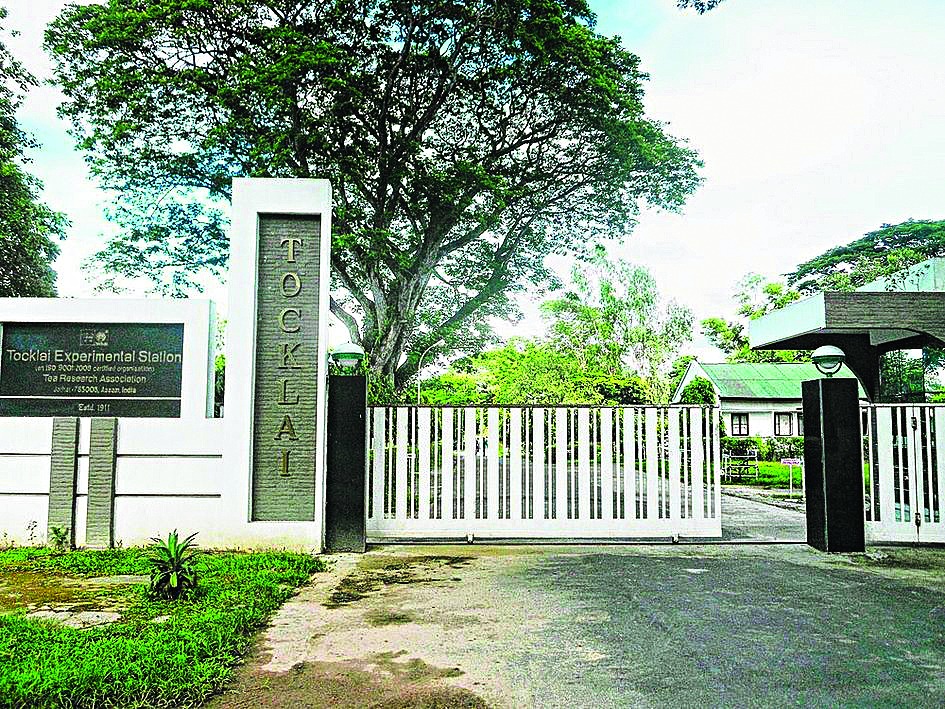
Jorhat, Sept. 9: The Tocklai Tea Research Institute here is undertaking a yearlong collaborative research project with the United States Department of Agriculture (USDA)/US Forest Service International Programs to develop better quality tea.
Devajit Borthakur, a scientist with the institute, told The Telegraph by email that the primary focus was to develop a protocol for authentication of processed Darjeeling tea, using nano technique.
Adulteration of Darjeeling tea had become a major problem. Borthakur said the technique used would ascertain if adulteration had taken place in any batch being sold in the market as Darjeeling tea.
The technique will enable accurate genotyping of Assam tea germplasm to battle drought, disease and other circumstances to develop better teas. Genotyping is the process of determining differences in the genetic make-up of an individual or species.
The research is being done at Agricultural Research Services, the in-house research arm of USDA and funded by the department of biotechnology, government of India, under its Overseas Research Associateship programme. The research expenses are sponsored by USDA/US Forest Service International Programs.
A senior scientist of the USDA/ARS, Dapeng Zheng, and Borthakur are the key scientists involved with the project.
Explaining the background of the project, Nanofluidic Array of Single Nucleotide Polymorphism (SNP) Markers for Varietal Authentication of Assam tea ( Camellia sinensis) clones and Molecular Characterisation of Elite Germplasm, Borthakur said the genotype of a tea clone plays a crucial role in quality or stress tolerance.
"Efficient methods for varietal authentication in the tea value chain have not yet been developed. Although non-invasive methods have been applied to identify a variety, so far it is not possible to distinguish the genetic identity of a tea variety, especially from processed tea. As such adulteration is a common problem in the marketing of premium teas like Darjeeling and Longjing," he said.
"The established lab technique utilised at the USDA laboratory will help Tocklai Tea Research Institute to establish specific DNA fingerprints for all popular tea clones in Assam and India. The data will also be utilised with tea genotyping results from other regions of Southeast Asia to establish the overall genetic diversity of tea within the centre of origin," Borthakur said.
"This nano technique of genotyping will not only be useful for authentication and germplasm management and tea-breeding programmes where accurate and efficient genotype identification is essential. This research has national and international significance and will promote tea utilisation, conservation and preservation initiatives," he added.
Regarding the expected outcome of the project, Borthakur said success of conventional plant breeding solely depends on accurate identification of the parent plants with desirable traits.
"The outcome of the project will enable breeders to select the right parents to improve tea quality. The technology transfer will also allow Tocklai Tea Research Institute to establish an authentication lab to verify all tea varieties," he said.
Borthakur said after his return from the US where he will work on the project, he could undertake accurate identification and rationalisation of the germplasm collection at various centres of Tea Research Association using this technique to test against fungal diseases, drought, cold tolerance, quality and pest tolerance.
The research association has around 3,065 germplasm maintained at the institution.
He could also initiate hybridisation and selection from the information generated regarding the true value of the collected germplasm.
He said the USDA/ARS had evinced interest in establishing long-term collaboration to undertake plant-breeding research for tea improvement.











